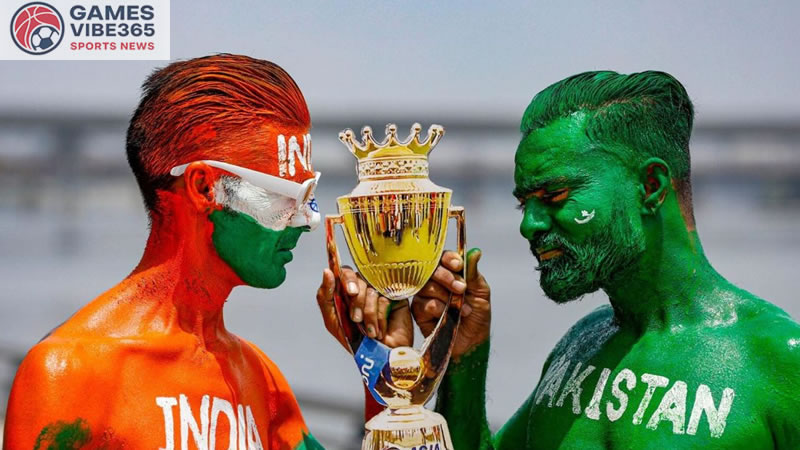
India vs Pakistan Asia Cup 2025: The build-up to the Asia Cup 2025 has been dominated not only by cricketing storylines but also by political and diplomatic debates surrounding the much-anticipated India vs Pakistan encounter. With speculation and calls for a boycott gaining momentum in recent weeks, the Board of Control for Cricket in India (BCCI) has finally clarified its position, putting the matter to rest.
The Official Stand: No Ban on Multinational Events
Speaking to Indian media, BCCI Secretary Devajit Saikia reaffirmed that the board operates strictly under the guidelines of the central government. He clarified that India’s participation in tournaments like the Asia Cup or ICC events is not under question.
“The current policy clearly states there is no restriction on playing against countries with which India does not share friendly ties,” Saikia said.
This means that while bilateral cricket between India and Pakistan remains suspended, fixtures in multinational tournaments will proceed as scheduled.
Why the Controversy Arose
India and Pakistan are slated to meet on September 14, 2025, in Dubai, a marquee clash that has already sparked global interest. However, the backdrop to this game has been clouded by:
- Boycott Calls: A few former Indian cricketers and sections of fans urged the team to withdraw from matches against Pakistan, citing strained diplomatic relations.
- Historical Context: India and Pakistan have not played a bilateral series since 2012–13, with encounters limited to ICC and Asia Cup tournaments.
- Political Sensitivity: Cricket between the two nations often extends beyond sport, symbolizing broader political narratives.
Saikia’s remarks aim to ease tensions by underscoring that the government’s policy framework leaves no ambiguity—India will compete in scheduled multinational matches.
Read More: UAE Announced Full Squad for Asia Cup 2025
Bilateral vs. Multinational: The Clear Divide
One of the key points Saikia emphasized is the difference between bilateral cricket and global tournaments:
- Bilateral Cricket: No series or matches are played against nations with hostile relations. This is why India and Pakistan have not toured each other’s countries in over a decade.
- Multinational Tournaments: Events like the Asia Cup, ICC World Cup, or Champions Trophy fall under a different category. Here, the government requires India to participate fully to avoid jeopardizing the nation’s standing in international sports.
“As far as BCCI is concerned, we have to follow whatever the central government formalises. Therefore, India has to play all its matches in multinational tournaments,” Saikia explained.
The Bigger Picture: Why Compliance Matters
The BCCI’s compliance with government directives is not only a matter of national policy but also of international sporting credibility. Saikia warned that refusing to play scheduled matches could result in sanctions or penalties from global governing bodies like the International Cricket Council (ICC). Or the Asian Cricket Council (ACC).
- Forfeiture Risks: Walking away from a fixture could lead to match forfeiture, which may impact tournament progression.
- Financial Implications: Breaching agreements might result in fines or loss of hosting rights for future events.
- Reputation: India, as one of cricket’s powerhouses, carries the responsibility of upholding the spirit of global competition.
The Policy Extends Beyond Cricket
Saikia also highlighted that this is not a cricket-specific directive. The Indian government’s stance applies to all sporting disciplines, ensuring consistency across the board. Whether it’s hockey, football, or athletics, Indian athletes are expected to compete in multinational tournaments, regardless of political equations.
“We are aligned with the policy framed by the Government of India and the Ministry of Youth Affairs and Sports. The policy is clear, and the BCCI is fully committed to adhering to it,” Saikia concluded.
What This Means for Asia Cup 2025
With clarity restored, fans can now focus on the cricket itself. The September 14 showdown in Dubai is likely to be one of the most watched matches of the tournament. Drawing massive crowds at the venue and millions of viewers globally.
- India’s Perspective: Rohit Sharma’s men will see this as an opportunity to assert dominance in regional cricket while preparing for future ICC events.
- Pakistan’s Approach: Under Babar Azam’s leadership, Pakistan will be eager to challenge their arch-rivals and prove their mettle on neutral ground.
Given the stakes, the clash could shape not only the trajectory of the Asia Cup. But also serve as a preview for possible India-Pakistan encounters in the ICC Champions Trophy 2025 in Pakistan. And the 2026 T20 World Cup in India and Sri Lanka.
Historical Significance of India-Pakistan Matches
Cricket between India and Pakistan has always been more than just a game. From the dramatic contests in the 1996 and 2011 World Cups to the electrifying 2017 Champions Trophy final. Each meeting has carried emotional weight for millions of fans.
Despite political tensions, these matches are often hailed as the pinnacle of cricketing rivalries. Comparable to iconic global rivalries like Brazil vs. Argentina in football.
Final Thoughts
The BCCI’s clarification puts an end to speculation: India will indeed face Pakistan in the Asia Cup 2025. While bilateral cricket remains frozen, multinational tournaments continue to provide a platform for the two sides to meet on the field.
For fans, this means the Dubai clash on September 14 is set to deliver yet another chapter in cricket’s most storied rivalry. Off the field, the decision highlights the delicate balance between sports. And politics reminding us that while governments dictate policies, the game itself continues to unite and thrill millions across borders.









